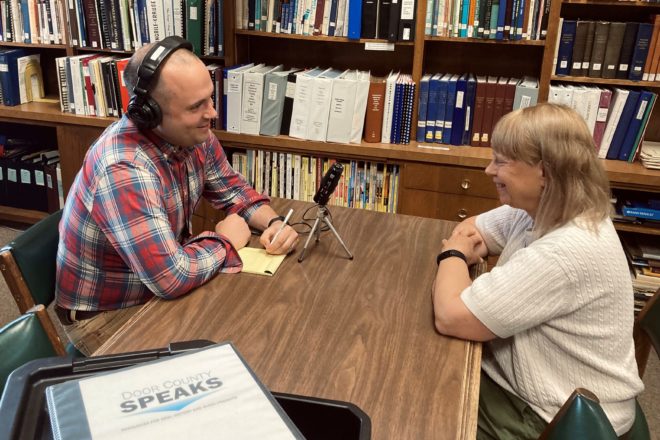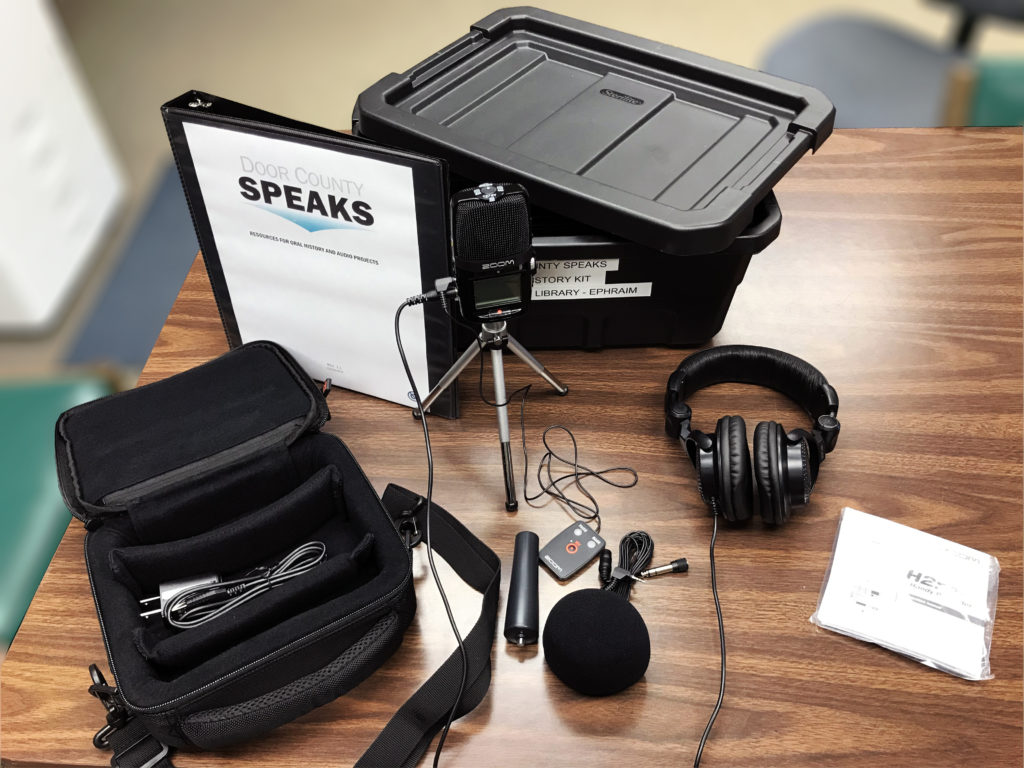Door County Speaks: Record your family’s oral history with a Door County Library kit
- Share
- Tweet
- Pin
- Share

My grandmother, born in 1874, was 46 years old when passage of the 19th Amendment finally gave her the right to vote. It never occurred to me, born with that privilege, to ask how she felt about being disenfranchised in that way for more than half her life. Now that I’ve lived as long as she did, there are lots of questions I wish I’d asked – and recorded her answers – so that later generations could have a glimpse of what life was like in the “old days.”
Recording the oral history of a family member or friend – just stories of everyday life, which changes so much in a few decades – is something many people talk about doing – when they get around to it.
“But they don’t have a tape recorder, or they don’t know how to get started, or they’re afraid they won’t do it right,” said Steven Rice, the archivist for both the Door County Historical Museum and the Door County Library System. “I got so many questions about how to do an oral history that we began work two years ago on a resource that would be easy for people to use.
The Door County Speaks project was born using grants from the Nicolet Federated Library System, which covers most of northeast Wisconsin, and the Wisconsin Library Service (WiLS). They purchased good audio recorders and a binder of information about oral-history books, articles and online resources.

“We boiled it down so anyone can feel confident using the equipment, whether they read the directions first or dive right in to recording,” Rice said. “We think we’ve created a situation where anybody in Door County can walk into one of the eight county libraries, check out an oral-history kit just like they’d check out a book, and get started.”
The kit also includes copies of legal release forms for the interviewee to sign to grant permission for how their words may be used later – whether orally, in print or online.
Rice grew up in southern Door County, and his grandfather was part of a bomber crew in England during World War II. He wondered what it would be like for his daughter, three generations later, to hear her great-grandfather share experiences that she could only read about in history books.
“Wouldn’t it be wonderful if we could hear the voices of family members who died before we were born?” Rice asked.
Taping oral histories is a tremendous gift for loved ones and their descendants, but also for future historians who may use the information in ways we can’t imagine.
“Their scholarship will be so much better because of this resource,” he said.
Already the Door County project is attracting some notice from those Rice has spoken with while developing it.
“The oral historian for UW-Madison uses the same recorders we purchased for our eight branch libraries and is starting to use some of our materials,” he said. “The city of Baltimore is thinking of duplicating our project for its 21-library system. It’s a great resource.”

